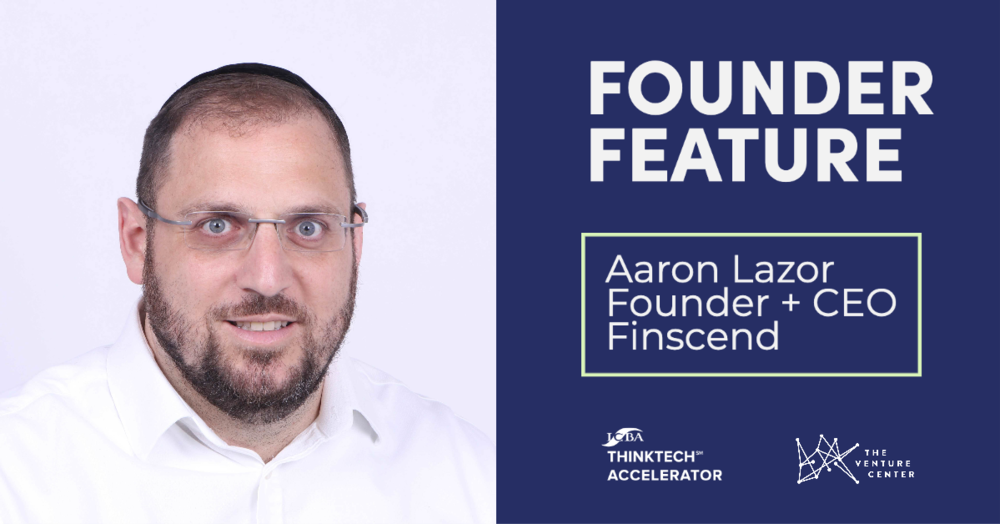
Build, Differentiate, Execute
By Aaron Lazor, Founder + CEO of Finscend
Prior to co-founding Finscend, I worked for fifteen years in financial services, which gave me the opportunity to comprehensively study the credit and debit card ecosystem, first as a banker and then as a CFO, where I was involved in merchant-side dispute processing. Then in 2016, I started my own consumer-focused credit card transaction dispute consulting business. That was the springboard to Finscend. We focused on what we later understood was a huge, underserviced substrata of cardholders who made card-not-present transactions for services that were never provided by merchants.
At the beginning we didn’t realize how widespread that phenomenon was. But because we knew the rules and were able to speak to bankers in the technical language they speak, we were able to provide our clients with valuable insight and assistance into the chargeback process. And we saw that the advice we provided significantly reduced processing time while increasing cardholder satisfaction. That was because we provided value to the bank by clarifying the correct dispute reasons and assisting the client in providing the necessary information to verify the claim. Claims that previously had been rejected based on misinformation or misinterpretation were now being accepted.
That experience validated our assumptions regarding key problems that banks face in the dispute resolution business – the chargeback process for card-not-present transactions is far too complicated, misunderstood, subjective, and unnecessarily lengthy. Due to their justifiable frustration, cardholders are increasingly gravitating to other credit card companies as a result. Our logical next step, therefore, was to replace what was a manual dispute resolution process with technology that could automate up to 80% of all card-not-present transaction disputes. Finscend was born!
Building a fintech company is certainly exciting, but not without its challenges. Fintech is an extremely crowded market, so from the beginning we knew that we had to differentiate ourselves. There’s no shortage of terrific fintech ideas out there, but banks can’t adopt all of them. And even if they could, they can’t adopt all of them simultaneously. So, they must prioritize.
As the banks are prioritizing, the challenge for any fintech startup is to get to the top of their list. Todo that in the niche we defined for ourselves required extensive research that had never been done before by anyone. We knew the research we would conduct would have to become the industry benchmark. And to get to that benchmark we knew that we had to begin by canvassing those most familiar with our niche, which is credit card dispute processing. So we rolled up our sleeves and studied the models employed by over 700 banks in more than 100 countries, and with that research, we were able to refine our solution to fit their real-world experiences.
That’s also why being part of the ICBA ThinkTECH Accelerator has been such a valuable experience. Working directly with community banks to understand what they experience day to day has been an incredible experience, and our team has thrived on the experience.
It has been a wonderful venture to build Finscend. When I think of how to help other entrepreneurs succeed, I know that works for me might not work for everyone. In general, let’s say that you have to be flexible enough to move boundaries in order to maximize success. To do that I purposely hire people who aren’t afraid to question my decisions or disagree with my opinions. That’s because I want to hear what the alternatives are. Sometimes they turn out to be better options, sometimes not. But without considering them I’ll never know if the decision I’m about to make is the preferred one and the best option I’ve got.
A company’s performance is a symphony of different players with different instruments who function as one. So, for me, what’s most interesting is coming into work each morning and watching a team of people, each one of whom has his or her own work to do, that collectively drives the company forward. As a former banker and as an executive in other companies, I was responsible for a unit or a division. But as an entrepreneur, I get to see how I can build something from the ground up that creates a volume of work while I look on and see everyone actively engaged in making sure this business gets to where it has to go.
